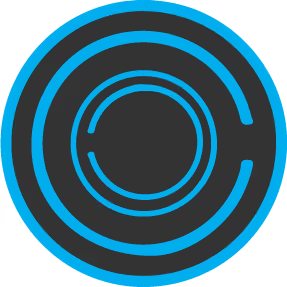





Most organizations struggle to develop high-quality software products that consistently meet their internal goals and targets. Just 11 percent of organizations report that their software products meet all of their pre-defined launch targets, according to industry research by Gartner.
One of the biggest challenges is that software development tends to take place within a workplace culture that fails to properly enable and support this work. In these organizations, software development tends to be managed as just another project, where the priority is to deliver on time, on budget, and according to project specifications. The end result is that developers don’t have the flexibility, time, or power to tweak the direction or scope of products as they’re being built. Product innovation, creativity, and best practices take a backseat to the demands of traditional project management.
The key to fostering a culture of product innovation is to replace traditional project management with a product-centric culture. Let’s explore four key ways that Outcode proactively builds a strong product culture—both internally and within our clients’ organizations:
Software that is developed via a traditional project management approach does not prioritize market fit. Specifically, the team knows it will be evaluated against how well the product conforms to original project specifications, so the team doesn’t have the time or freedom to think critically and creatively about how to design a product that will optimally resonate with customers.
At Outcode, our product-focused culture emphasizes market fit. As a product is being developed, we teach our clients to proactively put themselves in the customers’ shoes: What would make this product more useful to the target customer? What other customer pain points or problems does this product have the potential to help solve? What would help this product stand out in the marketplace?
The most successful software products aren’t designed in a silo by a development team and the business team that needs the product. It takes diverse teams—marketing, sales, customer service, legal, and business strategy—to develop a product that optimally fits into the company’s existing product lineup and optimally helps drive the company’s bottom line.
Outcode prioritizes building a collaborative workplace culture that encourages diverse teams to come together. In addition to fostering collaborative meetings at the scoping and design stages, we hold postmortems to articulate everything that went right and everything that went wrong with a task or stage. Significantly, we make sure that these discussions don’t focus on assigning blame—because we know that teams are much more likely to want to work together if they aren’t at risk of being blamed or scapegoated.
The best teams use an agile methodology that focuses on sprints and iteration. Indeed, it’s the gold standard, and Outcode uses the agile method too. But agile is not enough. Agile only prioritizes agility and flexibility within the boundaries of the project itself.
The agility and flexibility that are needed in a product-focused culture require the organization to be innovative and creative in the best interest of the product itself—even if it means the project scope, timeline, or budget needs to be adjusted. Product-focused agility and flexibility recognize that developers should be empowered to pivot and tweak where they deem necessary. In fact, at Outcode, we believe that changes in plans and direction can be essential for producing the strongest possible products.
Most companies value and use their customers’ input to help improve their software products. However, that input often comes at the end of the product development process. Customers may be invited to be beta testers or to provide input via a focus group, or their usage of the product may be monitored and statistics compiled. The shortcoming is that this feedback has a limited role in shaping the final product.
A true customer-centric mindset puts customers front and center throughout the software development lifecycle. At Outcode, we start by building a masterful understanding of who the clients are. We make sure that we’re drawing out of them what are the key pain points they face. Once we have established this rapport, we have put the customer in the driver’s seat. At every stage of development, the customer feels empowered to provide insightful, relevant feedback about everything from the direction we’re going to the smallest details about an app’s functionality.
A product-centric culture is not common among businesses that have defaulted to a traditional project management approach to software development. But it’s an essential transition to make. At Outcode, we foster a product culture for our clients by ensuring that they consistently prioritize market fit, collaboration, agility and flexibility, and a customer-centric mindset.
To learn more about Outcode’s unwavering commitment to building a strong product culture for our clients, please reach out to us. We look forward to showing you how we can tailor our proven approach to serve all of your organization’s software development needs.